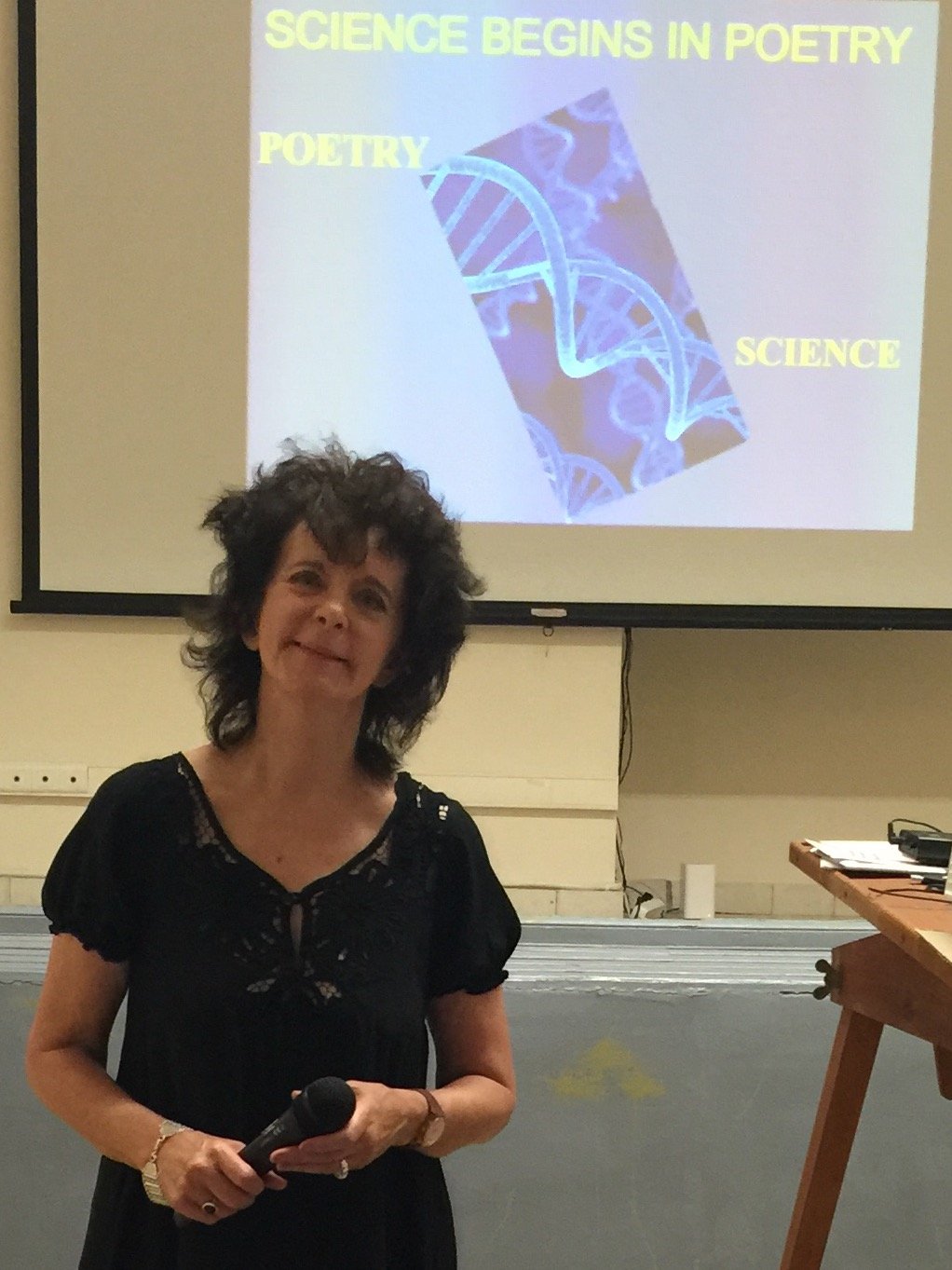Science begins in poetry…
Nature and Darwin
Ruth studied Greek and Latin, and poetry rather than science. But natural history ran in her family and from childhood, she found the love of poetry went hand in hand with love of nature. For her PhD on Greek tragedy, she researched the history of medicine and Hippocratic writing; she is now Life Fellow of the Zoological Society of London. She has served as a Trustee there, and also for the UK conservation charity New Networks for Nature; and is on the Board of Zoophilologica: Polish Journal for Animal Studies.
She comes from a family of scientists, doctors, scholars, teachers and naturalists Her great-great-grandfather was Charles Darwin, and her grandmother Nora Barlow, Darwin’s grand-daughter and first editor, was a botanist. Ruth remembers her in an essay on a flower named after her, and in the Introduction to her own verse biography, Darwin, A Life in Poems. Ruth wrote an Introduction herself to two of Darwin’s works: The Voyage of the Beagle and On the Origin of Species.
In 2001, researching Tigers in Red Weather, she began studying conservation biology and zoology, meanwhile including more science in her poetry and writing an essay on their relationship for the Guardian. She explored Asian forests with On the Origin of Species in her pocket.
‘I realized,’ she wrote later, ‘as I was kayaking rather fearfully down a jungle river in Laos, that while my great-great-grandfather’s journey, through similar terrain on a different continent, helped him understand how species came to be, my journey was a quest to understand how species go extinct.’ She visited wildlife research stations, talked to field zoologists in India, Bangladesh, Nepal, Bhutan, China, Russia, Laos and Sumatra, and gave the book a detailed Index which stresses the vital role played by science in wildlife conservation.
Her reading of Darwin in those forests went into her verse biography of Darwin and BBC Radio 4 series Darwin My Ancestor. For her first novel, Where the Serpent Lives, she researched king cobra conservation in the Agumbe Rainforest Research Station in the Western Ghats of India, and reviews commented on the vivid nature writing. ‘A novel you will not lightly forget: only Emily Brontë has embraced Padel’s radical and sympathetic inclusiveness of creaturely life’ (Guardian). ‘A nature lover’s delight… compelling, acute, lyrical’ (India Today). Her poetry collection Emerald, a farewell to her mother, also a botanist and passionate naturalist, mines the meanings of ‘green’, and closes with a vision of the importance of nature and natural history in all our lives.
Ruth’s migration book We Are All from Somewhere Else begins with the complexities of cell migration, and explores the physiology and psychology of bird and animal migration, and the impact of climate change and degrading habitat on migrating birds. She continued writing on cells and genetics in her collaboration with a researcher and composer in Music from the Genome, and in the science journal The Scientist. Her poetry pamphlet Watershed, on water and climate denial, ranges from the scandal of UK rivers pollution to water in myth, water as metaphor and the unconscious, and the crisis of water in climate catastrophe.
Ruth explored the biology, as well as myths, habitat and symbolism, of wild British animals in a popular series of radio essays for BBC 3, Wild Things, 2011-12, As Trustee of the Zoological Society of London, she curated a series of Writers’ Talks (2011-2015) to spread awareness of its conservation work, partnering a well-known author with an endangered wild animal and a zoologist who spoke about the animal’s biology and conservation.
In 2017, she followed David Attenborough and Robert Macfarlane in curating an exhibition for the Cambridge Conservation Initiative in the Attenborough Building, Cambridge: a series in which figures allied to the environment movement chart their personal journeys into the science and practice of conservation.
She is now writing a non-fiction book on Asian elephants.
“A poet and scholar with a beautifully patient understanding, reminiscent of Ted Hughes, of how the natural word invests itself in our experience.” — Telegraph
Mixing elephant snacks in Thailand
“Darwin’s descendent has evolved a new species of biography. This is no mere collection, but a complete miniature biography, told through linked but highly individual poems, a selection of visionary moments: snapshots, epiphanies, symbolic fragments” — Guardian
Ruth talking of Darwin's insight about time and structure

